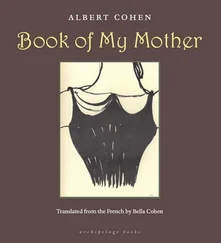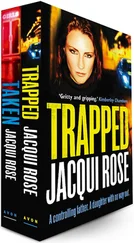And all this is set in motion once a year, with all of America’s literary agents and editors and publishers flying off, business class, to Germany, “to network” with their international counterparts, to sell the books they agent and edit and publish to other agents and editors and publishers in other countries, to buy the books the other agents and editors and publishers in other countries agent and edit and publish — to stretch their expense accounts out to the desistive notch of the industry’s debauched cardboard belt in lavish drinking and eating bingery and depressing indulgences in inroom krautporn — unsustainable.
It’s all far less efficient than it was half a millennium ago, when that scum capitalist Gutenberg forced his underpaid, uninsured employees to pack a wagon or packhorses or perhaps only a single wormridden horse with communion fare and a few copies of the genesiac printed Bible — headed a full day on a pilgrimage that today can take all of half an hour, from Gutenberg’s native Mainz following the river Main to Frankfurt, to the Messe, the Fair, where reading paraphernalia like tinderbox flints, tallow candles, and commodes were sold, where those first editions — literally the first printed editions of the word of God — were bought like any other commodity, by semiliterate merchants and papal emissaries, who haggled. The merchants went bust or were failed by heirs, the popes were divinely chosen by smokes and died, and likewise Frankfurt’s Römer, or cityhall, the site of its medieval markets, was abandoned for a newer fairgrounds, equipped with the infrastructure required by car tradeshows and appliancemakers’ expos.
The oldest extant building of the modern fairgrounds, though now only a performance venue, is the fin de siècle Festhalle, whose glass and steel were meant to reflect the design of Frankfurt’s main trainstation. The square in front of the Römer hosted a famous Nazi “libricide,” or “biblioclasm,” in which fiction and poetry were burned only for having insufficiently imagined what followed. Kristallnacht. The owners of those libraries, Frankfurt’s Jews, were herded into the Festhalle. From which they were droved to the trainstation, deported. It’s incredible what can be compressed, confessed to, on paper. The stroll was calm, the hotel was not. It had a very useful library.
\
A History of Frankfurt was an oversized and useful book, which covered the city from its founding by tribal Franks to its destruction in the Allied aerial bombardments of 1944. This hotel was among the casualties. The photograph on its page was dated 1933, however, and showed the structure as grand, intact, staunch in tradition, ennobling in permanence, and indistinguishable from its incarnation today. A History of Frankfurt noted only that the hotel was subsequently rebuilt, but never addressed how or why it was rebuilt — though perhaps such questions are only for outsiders, or retrospect.
Because it seems to me that standing amid the rubble you have a choice.
You can rebuild, or you can not rebuild, and if you decide to rebuild then will you rebuild the thing exactly as it was or will you make it new. Either you can go get the exact same masonry and the exact same woods and the semblant rugs and the Aryan atlas figures that uphold the pediment with your name done up in vermeil, to make as faithful a replica as tenable of what you’ve lost, or else you can just hit reset and find an alternate design — other materials — and maybe not even a hotel.
I had this thought at and about the Frankfurter Hof, of course — this outstanding reproduction of a hotel, stolid in its blockbound prewar glory, truly the architectural embodiment of everything the city surrounding it has always aspired to, just acquired and spiffed by a consortium of Sunni hoteliers, apparently — but because I know the future will demand the explicit, let me also state: the questions of whether to make, or not to make, of whether to remake or make new, are just as germane to literature.
“Did Elisabeth Block check in yet?”
The Reception slab was a barricade protecting taste from the shabbiness of frequent flyers. The Hofmeister, Herr Portier, uniformed like a general, had a phone on hold over each shoulder like epaulets—“Are you Mr. Aaron?”
But then he raised a hand as if in salute, and, pressing extensions, transferred his calls to the garage, or wellness spa, or Ruritania.
“Again,” he said, “my regrets. What is your name, sir?”
“Aaron Szlay?” It was a decent guess, and I even spelled it.
He nodded as if to indicate that he was going to vary this performance a bit from the way we’d done it in rehearsal, and then he went to charge my keycard.
The guy behind me reached around to tap his pda on the marble ledge—“What’s the goddamned holdup?”
Herr Portier said, “Please, sir, we today are at the maximum.” And then to me, “Ms. Block has taken care of everything.”
I took the keycard, the luck, and repeated my room number just to have a line.
“Unfortunately we are not able to accommodate upgrade to executive.”
“I understand.”
Throughout this, I have to mention, Herr Portier had barely broken from his screen. I left, but the tapper didn’t advance — not until he finished txting.
The room: I’m guessing we’re already well past that posthistorical point at which it’s still interesting to note that hotelrooms are like film sets — now I’m just assuming they’re designed that way, and that thanks to film itself and to Frankfurt School theory classes the unconscious has once again become the deliberate (the tedious). Everything furniture to fabrics was squiggled and jotted as if all aesthetics were just a hedge against spills. Lamps giving off light to the circumferences of chipboard tables. The TV was atop the desk (the escritoire? secrétaire?), so that I won’t be able to write — if I have to write another hotel sentence I’ll die.
I sprayed myself wethot in my underthings and wrung them out hung, got into bed with the snackbasket. Crumbs. Sky News was doing the invasion of Libya and the occupation of Wall Street. Then Germany’s Next Top Model, they hadn’t translated the title, and then a show I didn’t know, whose every voice was Ad’s, and drooling into maybe, just maybe, sleep.
Until the phone rang, and it kept ringing, because I let it.
I was woken by a knock at the door — which nobody ever does on TV, they just bound in. Unexpected doorknocking is more a staple of the European novel, more ominous.
“Aaron Szlay?” The accent was abominable, even through oak.
The only thing worse than an Aussie or Kiwi intonation is its intermittent use. When it’s Auckland talking, or Melbourne, fine. But when a snatch of downunder drawl erupts from the mouth of a Euro, it’s like blood in your urine. Maleksen said, “I know you’re in, mate.”
“I’m in the bathroom,” and I was flushing the toilet to stall. To stow my tote, hide my Tetbook.
But it wasn’t fitting — not between tank and tile, not beneath the sink, and then, there on the floor and just as I’d left it, paged open to the spot I was in, it was A History of Frankfurt, which had the spatials and heft. I wedged my Tetbook and Principal’s passport too in among the pages, and stashed the volume on the shelf with all the other volumes about life, war, and what to do in town.
Maleksen — he made a fist and put it to my pudge, fistbumped me back to bed until I sat, holding my towel’s knot, pillowed at the headboard.
Читать дальше












